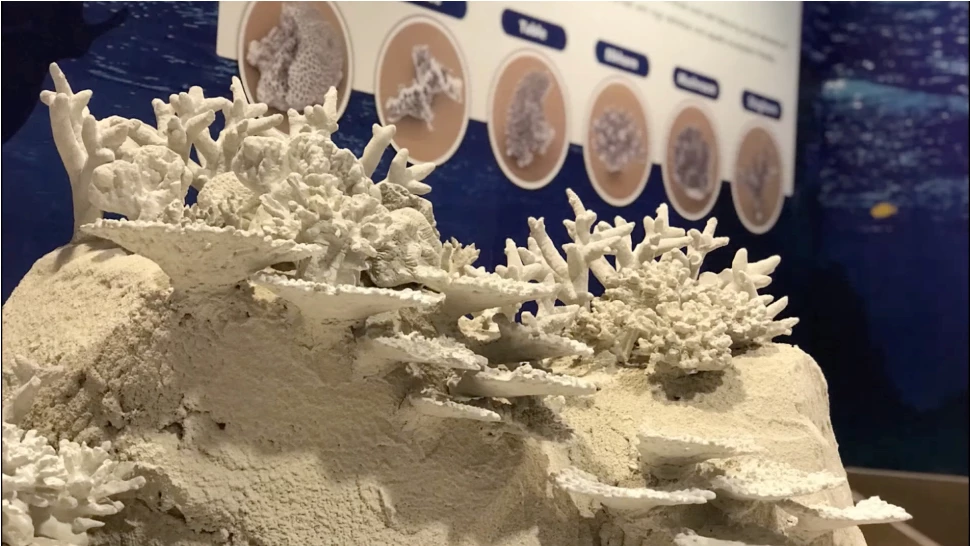Even if environmental factors such as ocean acidification can be addressed, our decimated coral reefs will still need some help growing back. That's where a "Lego-like" system known as 3D Innoreef is designed to come in.
Developed at Thailand's Chulalongkorn University, 3D Innoreef consists of 3D-printed concrete modules that are designed to both look and function like the calcium carbonate "skeletons" of natural coral reefs.
Groups of three modules are placed on the ocean floor and linked together – like pieces of Lego – where they proceed to act as a single "roost" for free-swimming coral larvae known as planulae. Once those larvae have established themselves within the nooks and crannies of the modules, they begin producing calcium carbonate, essentially building a real reef over top of the concrete stand-in.

In order to give the larvae a boost, the surface of the concrete is already pre-coated with calcium phosphate, which is essential to coral growth. The strategy appears to work well – on several Innoreefs that were installed along the coast of Thailand's Chonburi province since 2020, corals were found to grow significantly faster than their counterparts on natural reefs, by about three to four centimeters (1.2 to 1.6 in) per year.
As an added benefit, holes and hollows built into the Innoreefs provide hiding places for fish, invertebrates and other animals, encouraging them to move back into the restored reefs. Additionally, reef-health-monitoring sensors can be housed within the modules – the scientists have already adapted Innoreefs to serve as "smart stations" that monitor factors such as water temperature, pH and tidal forces.
Ongoing research will now focus on reducing the cost of the modules, and making them more realistic. It should be noted that other groups are working on similar projects, which include larvae-hosting coral-like structures made of terracotta clay and actual calcium carbonate.
"Even though nature has been substantially destroyed, humans can still restore and recreate it with innovations," said the project leader, Dr. Nantarika Chansue. "We hope that Innovareef will be a better alternative in the restoration of the marine ecosystem, stimulating the local economy, fisheries, and eco-tourism."
Source: Chulalongkorn University




